Imagine a world where Germany's ambitious Schlieffen Plan succeeded during World War I. In this alternate timeline, the German army swiftly defeats France, dramatically altering the course of history.
The rapid victory over France would have allowed Germany to focus its military might on the Eastern Front, potentially leading to an earlier defeat of Russia.
This shift in power dynamics would have had far-reaching consequences for Europe and the world, reshaping borders, alliances, and the rise of competing ideologies in the 20th century.
The Schlieffen Plan
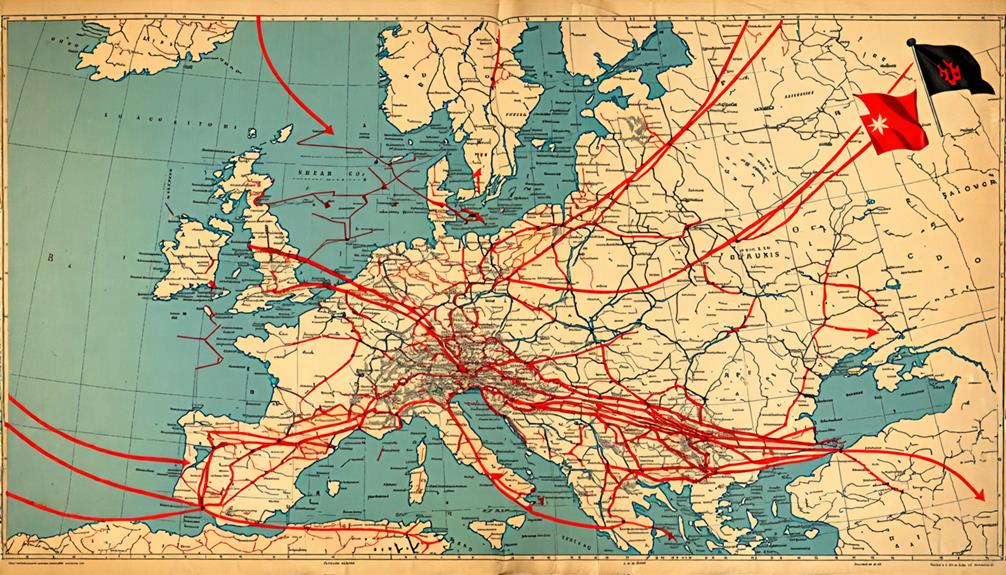
The Schlieffen Plan was a daring strategy that, if successful, could have drastically altered the course of World War I. One theory is that a rapid German victory over France would have prevented the bloody stalemate on the Western Front and led to a much shorter war.
It's also possible that without British involvement, Germany could have dominated continental Europe.
Interestingly, during World War II, Hitler actually did attempt a similar plan with his invasion of France in 1940. While the circumstances were different, the basic idea of quickly knocking out France before turning attention to the East was the same.
Of course, we can only speculate on what might've happened if the Schlieffen Plan had been executed successfully in 1914.
Rapid French Defeat
Had the Schlieffen Plan succeeded, France would've likely been rapidly defeated and forced out of World War I by late 1914. With Paris captured and the French army destroyed, Germany could have shifted its full military might to the Eastern Front against Russia.
One theory is that this would have led to a quick German victory in World War I. It's also possible that even with France defeated, the war could have still dragged on if Russia and Britain remained in the fight.
Interestingly, a similar swift victory over France was actually achieved by Nazi Germany during World War II in 1940, although that happened over two decades later under very different circumstances.
Russian Mobilization Challenges
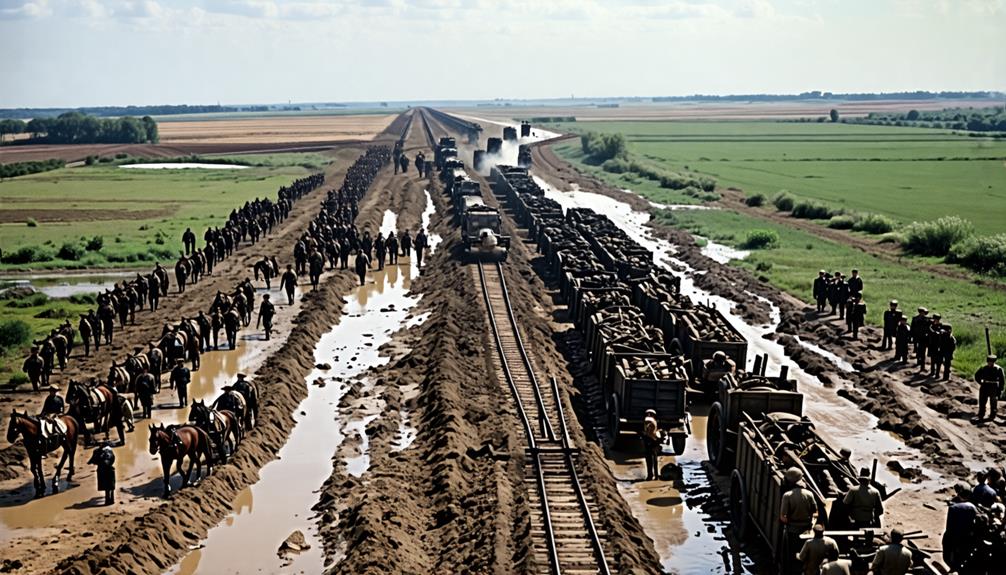
Even if France had been rapidly defeated, Germany may have struggled to achieve a similarly swift victory against Russia due to its vast size and manpower.
Russia's challenging geography and underdeveloped rail network compared to Germany's efficient railways would have greatly slowed Russian troop mobilization and deployment.
Some historians theorize that even with these challenges, Germany could have eventually ground down Russian resistance through attrition and by exploiting internal unrest, leading to a German-dominated continent.
Others argue that Russia's endless expanse and massive population would have allowed it to eventually turn the tide and push Germany back.
A German invasion of Russia was in fact attempted over two decades later by Nazi Germany in World War 2, though under very different circumstances.
Britain's Response
In an alternate timeline where Germany quickly defeated France, Britain's response would have played a pivotal role in shaping the war's outcome.
One theory is that Britain would have scrambled to strengthen its defenses against a potential German invasion while seeking alliances with other European nations to counter German dominance.
Another possibility is that Britain might've considered negotiating a peace settlement to avoid a lengthy and expensive conflict, or it could have mobilized the vast resources of its empire to prepare for a drawn-out struggle against a powerful Germany.
Interestingly, a similar scenario did occur during World War II when Nazi Germany rapidly conquered France, forcing Britain to adapt its strategies and rally its allies to confront the growing threat.
Shift to the East
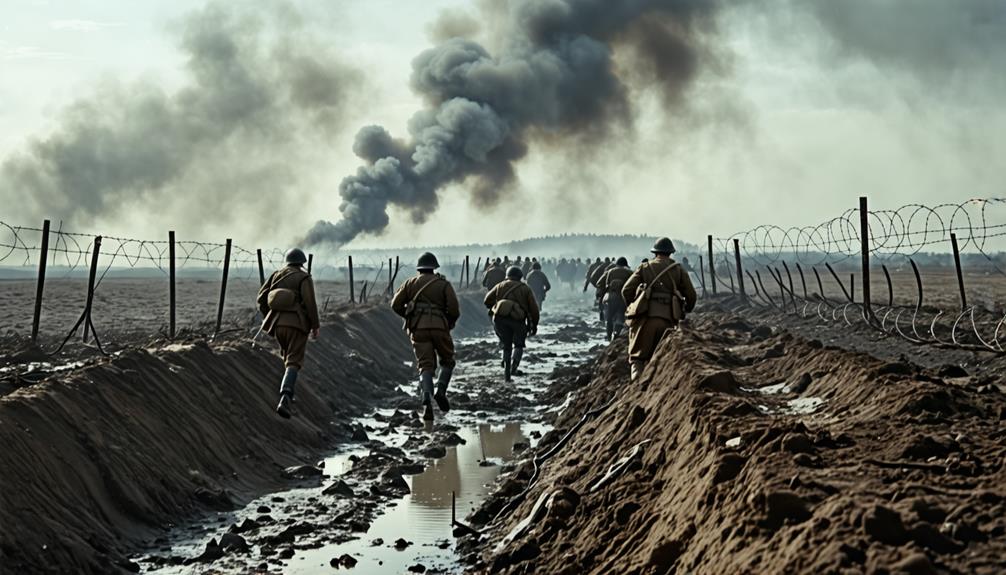
If Germany had swiftly defeated France in World War I, one theory is that it would have allowed the German army to redeploy troops to the Eastern Front and support their Austro-Hungarian allies against Russia.
This shift in military focus could have potentially led to a quicker defeat of Russia, significantly altering the course of the war.
It's important to note that a similar scenario did occur during World War II, when Germany rapidly conquered France and then launched an offensive against the Soviet Union.
However, the outcome of this later campaign was quite different, as the German army ultimately faced defeat on the Eastern Front.
Impact on the Ottoman Empire
One theory is that a successful Schlieffen Plan could have reduced Allied pressure on the Ottoman Empire, potentially allowing them to maintain or expand their territory. This may have increased the influence of Germany and Austria-Hungary in the Middle East region.
It's possible that events like the Arab Revolt mightn't have occurred, or would have happened differently. The Sykes-Picot Agreement and Balfour Declaration, which shaped the modern Middle East, could have been delayed or altered significantly in this alternate timeline.
While Germany didn't attempt the Schlieffen Plan again later in World War I, some historians have speculated about the possibility of a similar strategy being used by the Axis powers in World War II. However, the geopolitical circumstances and military capabilities of that era were quite different.
Consequences for the Balkans
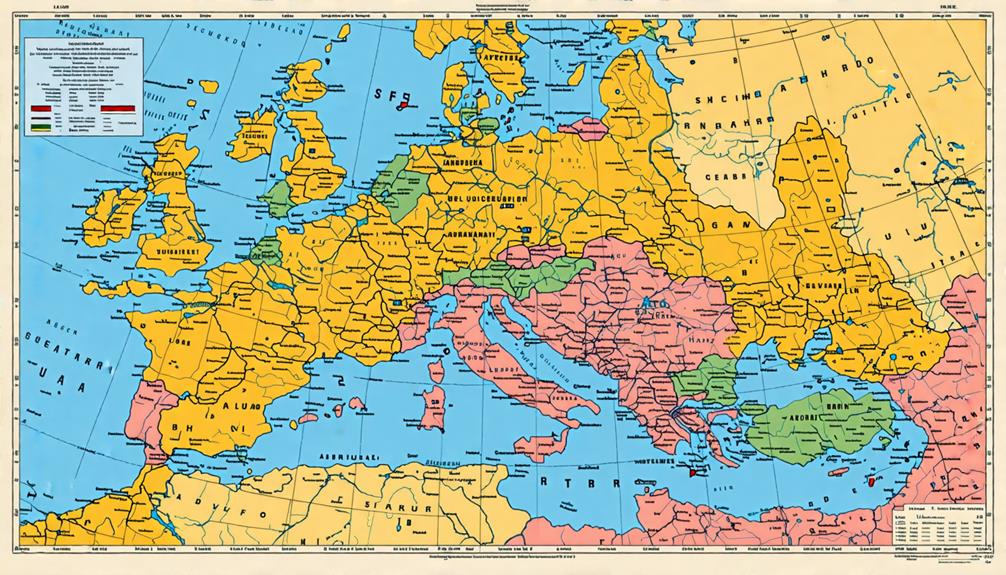
One theory is that a victorious Germany would have strengthened Austria-Hungary's position in the Balkans, enabling them to more effectively suppress Serbian nationalism. This German influence could have continued after the war, significantly changing the region's path forward.
It's possible that these changes might've averted future Balkan conflicts.
However, it's worth noting that a similar scenario did play out years later when Nazi Germany dominated the region during World War II, with very different consequences.
Altered Post-War Landscape
If Germany had emerged victorious in World War I, it would have profoundly altered the course of the 20th century. One theory suggests that Germany would have established itself as the dominant power in Europe, potentially leading to a different balance of power and alliances on the continent.
The rise of fascism and Nazism might've been averted or taken a different form, and the decolonization of European empires could have been delayed. It's possible that the Russian Revolution might've had a different outcome, or perhaps not occurred at all.
Interestingly, a similar scenario did play out decades later when Nazi Germany briefly conquered much of Europe during World War II, although they were ultimately defeated.
The post-World War I world as we know it would have been drastically different had Germany prevailed, leaving the consequences open to speculation and debate.
Long-Term Geopolitical Implications
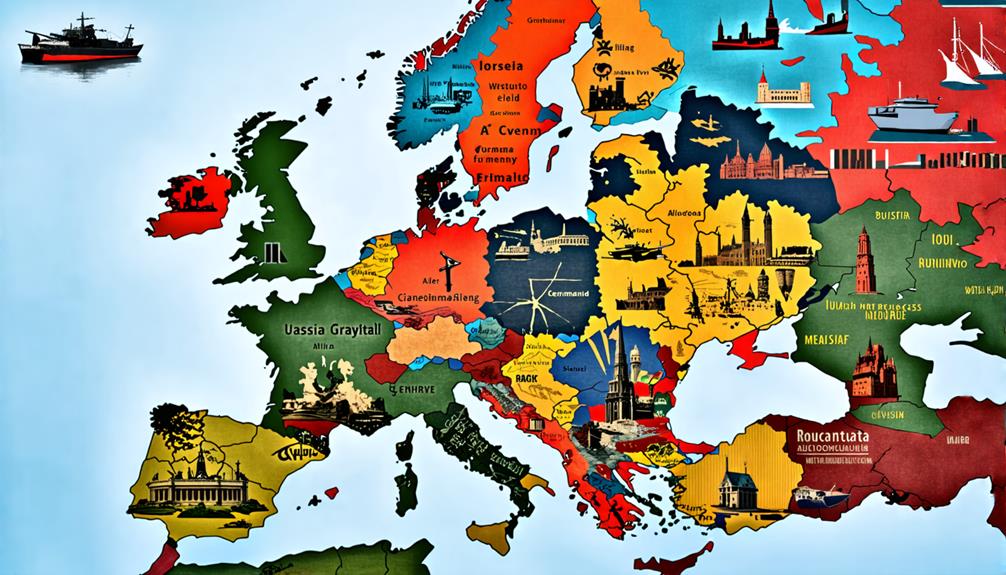
In an alternative history where Germany emerged victorious, the global balance of power could have been dramatically reshaped. One possibility is that a dominant Germany would have exerted far greater influence over Europe, potentially leading to heightened geopolitical tensions with rival powers.
The lack of a powerful Soviet Union might've significantly altered the course of events in the 20th century. It's conceivable that other nations or ideologies could have eventually risen to challenge German hegemony at a later date, but the specifics would depend on many variables.
Conclusion
Had the Schlieffen Plan succeeded, the 20th century would have danced to a drastically different tune.
Germany's swift victory over France and Russia would've redrawn Europe's map, potentially preventing the rise of Soviet influence and the birth of fascism.
Like a stone tossed into a pond, the ripple effects would've reshaped the world as we understand it, altering the course of history and the fate of nations for generations to come.
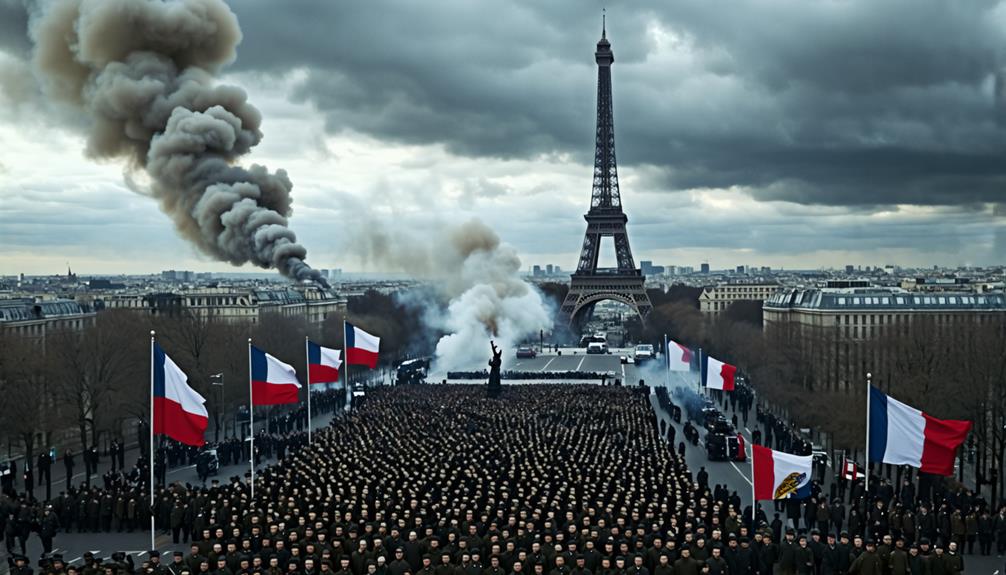
Leave a Reply